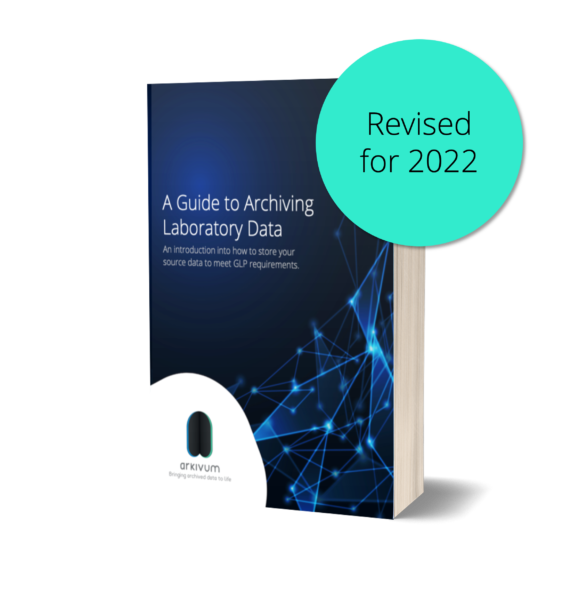GLP Compliant Lab Data Archive Solution
Your GLP Data. When you need it.

Preserve the past. Focus on now.
Managing substantial volumes of GLP data can pose significant challenges to laboratories, particularly as data volumes continue to grow. To effectively manage these challenges, it is important for laboratories to adopt a risk-based approach and select a GLP-compliant archiving and preservation solution.
By doing so, laboratories can have confidence in the integrity and longevity of their lab data. This supports ongoing patient care and testing by providing a reliable foundation of historical data that scientists can reference and build upon.
It also reinforces compliance with regulatory requirements. Failure to do this can impact patient care, levy financial penalties, and damage the institution’s reputation.

Centralised Laboratory Data Management
Decades of data. Minutes of your time.
Managing laboratory data across multiple locations not only hinders the ability to revisit past data but also creates complications during inspections. In many cases, the process of locating data for inspection preparation can disrupt daily operations as staff must pause their regular duties.
This type of event highlights the importance for laboratories to centralise their GLP data, streamlining access for both staff and regulators. By using one GLP validated archiving and preservation solution, more time is dedicated to analysis and less time is spent locating data from multiple sources
Long-Term GLP Compliant Laboratory Data Preservation
Move your mindset forward.
While some digital archives are effective in storing large volumes of data, they are not designed for the long-term preservation of GLP data. This puts laboratories at risk of failing to align with preservation standards set out by UKAS, ISO, and the HCPC guidelines, as data that may be needed years from now might not be legible or accessible.
Leaving long-term GLP data in Laboratory Information Management Systems (LIMS) or even a cloud-based file sharing platform has been the “classic” way of storing lab data and patient records. However, this method presents challenges in maintaining complete control over the data.
In a modern system, users should be able to actively preserve and recall records as required, whilst mitigating the risks of data corruption posed by the traditional approach to data storage.
A GLP compliant archiving and preservation solution not only aligns with GLP regulations, it also provides a practical approach to accessing data in real-time, making stored records easy to retrieve and act upon.
GLP Data Management, Safeguarding and Search
At Arkivum, we specialise in assisting laboratories with managing their GLP data. Our solution offers numerous benefits that enhance operations and ensure compliance with regulations and guidelines.
Find out more about some of the key features of our solution below.

Advanced Data Search
To support future research, it’s important that laboratory staff and key stakeholders (both internal and possibly external) are able to easily find critical information when they need it.
Leverage powerful search functionality across the archive, so that every user can easily and quickly find what they need, when they need it.

Safeguarding & Data Integrity
Digital safeguarding is crucial for any organisation looking to retain GLP data for more than 5 years. Our safeguarding technology helps you to mitigate against the risk of data corruption or loss, forever. Arkivum’s automated data integrity checks protect your data for as long as it is needed, without requiring manual intervention or becoming an operational burden.

Data Management & Access
Laboratories retaining digital content for decades or longer should maintain an accessible and centrally managed digital archive under their control. With Arkivum’s solution, laboratory records and data can be accessed and managed instantly online. Additionally, Arkivum’s vendor-independent approach eliminates the risk of lock-in or data silos, ensuring you remain in complete control of your data.
Arvikum’s Digital Guide to Archiving Laboratory Data
eBook: A guide to archiving laboratory data
Download our free guide on archiving and preserving GLP data. This practical guide explores the difference between data storage vs. preservation, data integrity considerations, when to plan, and more.

Laboratory Data Archive & Management FAQs
How does the Arkivum solution support inspection readiness?
The Arkivum solution is live archive, not a locked system. This means that data can be easily accessed and searched, enabling life sciences organisations to easily make requested data available. In some instances, customers may even want to provide inspectors with a bespoke login, enabling them to review and search relevant documentation as required.
In addition to this, by maintaining all of your long-term and quality checked records and data in a single repository, customers can have peace of mind that is it both inspection prepared and inspection ready.
Can you automate data preservation?
Yes, the system supports API integration, so you can have your data uploaded to Arkivum for preservation in an automated workflow.
Can you archive LIMS data?
Yes, all file types can be uploaded to Arkivum, including LIMS data and records. This can either be stored in its native format or extracted from LIMS and uploaded to the platform. The system also supports API integration, so automatic uploads to the system can be triggered.
Will we be trained to migrate data into the system ourselves?
During the onboarding process, Arkivum will train staff on how to upload and ingest data into the system. The migration service has been designed for organisations who would like additional support to migrate their data into the archive.
Will you provide ongoing support?
Yes, absolutely. We have a dedicated support team and will answer any queries within 1 business day. We can support you with the day-to-day usage of the system, but also with things like upcoming inspections and data ingests.
Can you preserve dynamic data?
Dynamic data can be uploaded to the system, but the system is designed for long term digital preservation and archiving, not file management. Therefore, once a file has been uploaded to the system it can’t then be edited.
Can I archive petabyte scale datasets?
Yes, Arkivum has performed benchmarking exercises with the likes of CERN, where we were able to demonstrate an ingest rate of 100TB/ day. The system is scalable, so can be built with any size dataset in mind.
How does Arkivum support my alignment with ISO 15189?
While Arkivum is not certified in ISO 15189, our solution supports organisations with good documentation practice, alignment with GLP principles, and ultimately their efforts to adhere to this standard.
What file types can I archive?
It is possible to upload any data types into the Arkivum solution. For more advanced functionality such as preservation, the system supports well over one hundred of the most common formats. If you would like to discuss your requirements in more detail, please contact us.
Does Arkivum support dynamic retention rules for different record types?
Yes, retention rules can be defined by users and applied to collections of data in the system. So, if you are working with a variety of record types with different retention requirements, you can apply appropriate rules and ensure adherence to industry guidelines.
Do you support full-text search?
Yes, for certain document formats (including PDF, CSV, presentations, json, txt, and docs) we support full text indexing. This enables users to search across the whole document, and not just the metadata.
Is there a limit to how much data I can archive?
No, the Arkivum solution has been built to scale with customer requirements and leverages the power of hyper-scale cloud environments. Arkivum has experience in managing datasets at the petabyte scale and across millions of records.
Can I upload Zip folders to the Arkivum solution?
Yes, it is possible to upload Zip folders to the Arkivum solution. Users can also choose whether a zip file will be uploaded as is, or if it should be unpacked as part of the upload process.